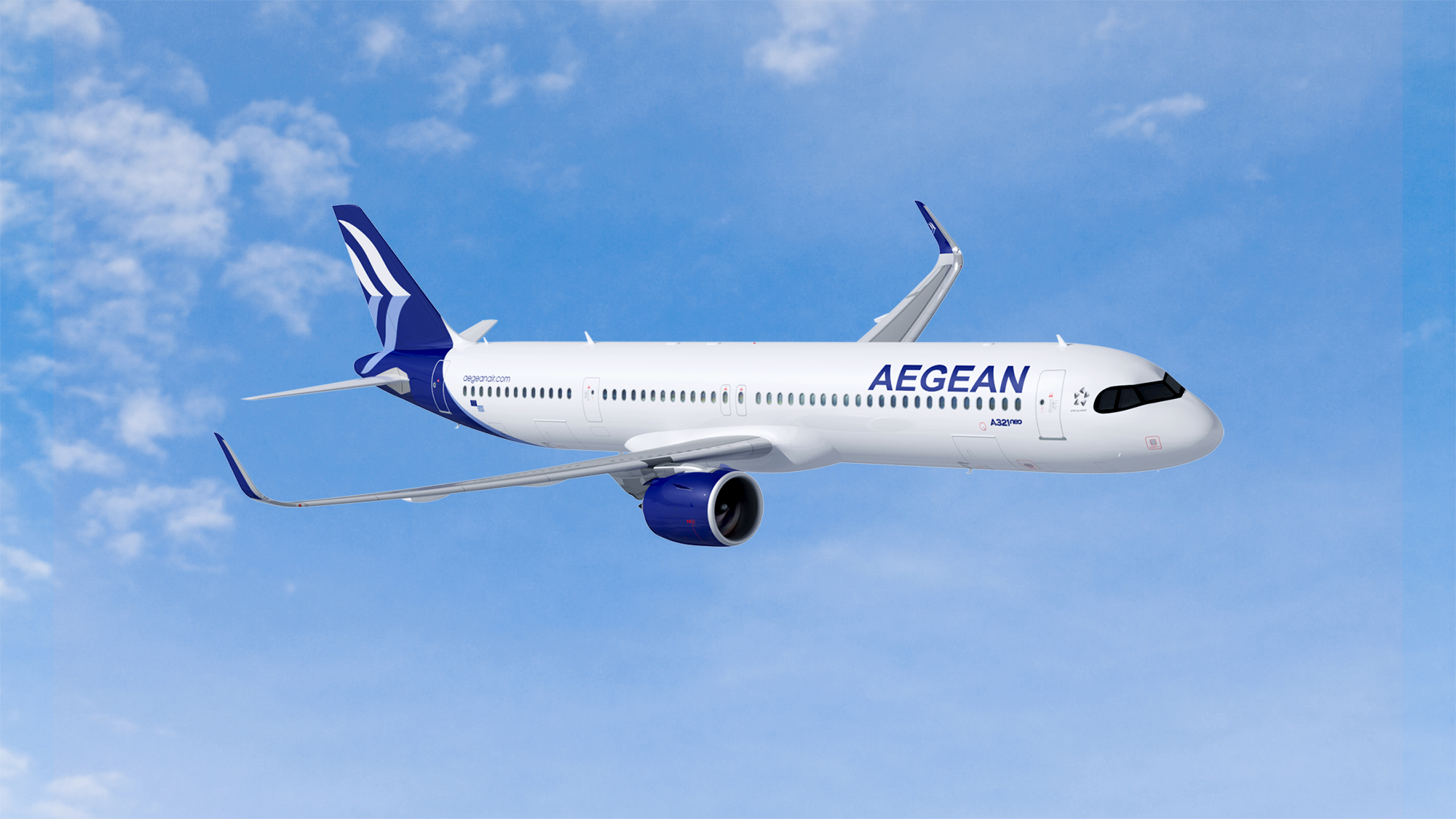Greek airline AEGEAN’s revenues increased 5% to €1.7bn for full year 2024 and up 10% for the fourth quarter. The improvements were driven by a 5% increase in full year capacity and a 6% increase in total passengers, which reached 16.3 million in the full year. Additionally, fourth quarter capacity was up 4%, and passengers were up 7% in the fourth quarter to 3.7 million.
The airline’s strategy to increase capacity during off-peak months had also helped drive the performance, despite significant headwinds.
“Challenges from the restrictions to the Middle East and the continuing effect of the GTF inspection cycle to our costs were and will remain significant for some time,” said AEGEAN CEO Dimitrios Gerogiannis.
Aircraft on ground (AOG) averaged at eight in 2024, though the company said it was able to secure a compensation agreement with Pratt & Whitney to cover a “substantial portion” of the financial impact. The compensation comes in the form of relief for every day the aircraft is grounded and also the provision of engines that it can source from Pratt at discounted rates.
However, during the company's earnings call, Gerogiannis said: “These two [forms of relief] are not sufficient to cover our overall costs.” He added that it was impacted by costs of maintenance and wet leases that had to occur in 2024 due to the groundings.
The airline expects on average 10 AOG for 2025 as inspections and repairs continue. Gerogiannis said in the call the company will not repeating wet leases from 2024 this year. “The ACMIs were actually very expensive and we were not even able to plan them at the right time to offset the problem, because the predictability of when we will have the ability to go into the shops or have the engines is not as precise as we would like them to be," said Gerogiannis. “I would expect the next years to be also burdened by this number.”
“In order to minimise the capacity impact caused by the GTF engines unscheduled inspections, [AEGEAN] has extended lease agreements of older generation A320ceo aircraft since last year,” the company read in a statement. “Additionally, the group has adjusted its flight operations by reallocating capacity to its main bases in Athens and Thessaloniki.”
Gerogiannis added that the company is continuing to have discussions with Pratt about the “revision of the elements” of the compensation agreement.
The company said it financed three of its A320neo family aircraft with JOLCO structures in the year and received five A320neo aircraft in total for the year as it continues its fleet renewal strategy.
Net losses widened to €2.1 million in the quarter, compared to €1.6 million a year prior. Additionally, full year net profits were down 23% to €130 million.
Fourth quarter EBITDA more than doubled from €33 million to €75.4 million, while up only 1% in the full year to €405.3 million. Pre-tax profits were down 24% in the full year to €164 million and pre-tax losses widened to €6.5 million in the fourth quarter, compared to €2.2 million a year prior. Financial expenses totalled €1.6bn for the full year.
Gerogiannis said it was going into the year with a “somewhat significant investment" in capacity. The airline hopes to grow capacity by around 8-9% in 2025. “Effectively, it is not dissimilar to the intention we had last year, except that the inability to fly to the Middle East in the summer took away 2-3% of our overall [capacity] growth and landed us at 5% so it's more or less the same plan as we had the year before,” he added.
The company also expects to up its stake in Volotea from 13% to 21% in the summer of this year, aligned with its plans announced in September last year.
“They performed at the level of our expectations and the level of their commitment to us, and therefore we're also in a discussion with them and the rest of the show holders in the company about the second part of the anticipated investment,” said Gerogiannis. “And these discussions are going to take the next three, four months, so expect by June or July to know the degree of our additional investment of the company.”
Unit revenues increased 7% in the quarter to 8.1 cents, while full year unit revenues were up 2% to 8.4 cents. However, quarterly unit costs outpaced and outgrew unit revenues, increasing 8% to 8.4 cents. Excluding fuel, quarterly unit costs were up 15% to 6.8 cents. Full year unit costs were up 5% to 7.8 cents and, when excluding fuel, up 8% to 6 cents. Yields were up 6% in the quarter to 9.8 cents and up 2% in 2024 to 10.2 cents.
The airline’s load factor was up 0.4 percentage points in the fourth quarter to 83.1% and down 0.9% in the full year to 82.5%.
As of the end of the year, the company’s cash totalled €769.1 million and assets totalled €2.9bn. Net debt was €662.2 million, with a net debt to EBITDA of 1.6x.

